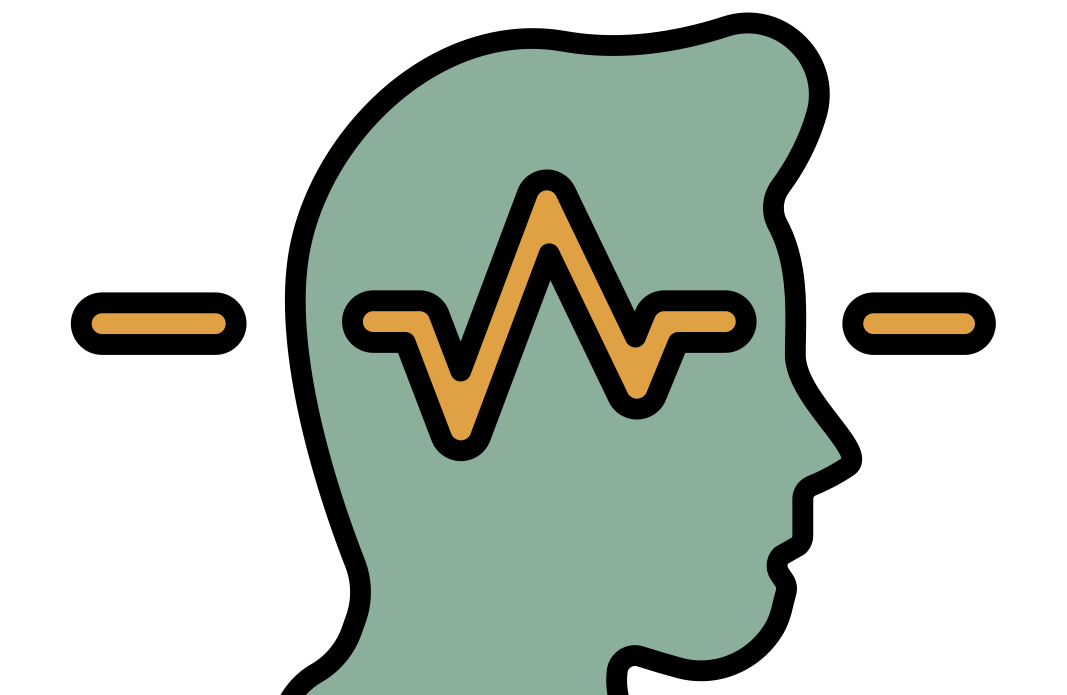BDNF as a master regulator of cognitive function
How simple daily activities compromise BDNF expression and cause functional symptoms like chronic fatigue, lack of concentration, fibromyalgia, reduced cognitive function, and even depression.

BDNF (brain-derived neurotrophic factor) is a protein that is essential for the development and function of neurons in the brain. It is a member of the neurotrophin family of proteins, which are important for the growth, survival, and differentiation of neurons. BDNF is produced in various regions of the brain, including the hippocampus, which is involved in learning and memory, and the cortex, which is involved in higher cognitive functions such as decision-making and problem-solving
Brain-derived neurotrophic factor is the fertilizer of the brain
BDNF can be thought of as the fertilizer that helps the brain grow and thrive. It promotes the growth and survival of neurons, as well as their ability to form connections with other neurons, which is essential for learning and memory. BDNF also plays a role in the regulation of mood, and deficiencies in BDNF have been linked to depression.
Without brain-derived neurotrophic factor, the brain would be unable to form connections between neurons and communicate effectively, leading to cognitive deficits. In this way, BDNF acts as a master regulator, ensuring that the brain is able to function optimally.
Why we need BDNF
The pleiotropic nature of BDNF refers to its ability to affect multiple processes in the body. BDNF is involved in the growth and development of neurons in the brain, as well as in the regulation of mood, stress, and cognitive function. It is essential for the formation of new neurons in the hippocampus, and it plays a role in protecting the brain from damage. In addition to its effects on the brain, BDNF is also involved in the regulation of metabolism, cardiovascular function, and the immune system. This wide range of effects makes brain-derived neurotrophic factor an important protein even before birth, as it is involved in many different processes that are essential for normal development and function.
BDNF is essential for the formation of new neurons in the hippocampus, a region of the brain involved in learning and memory. This process, known as neurogenesis, is essential for maintaining cognitive function throughout life.
BDNF also plays a role in protecting the brain from damage. It can help to reduce inflammation in the brain and promote the repair and regeneration of damaged neurons.
BDNF signaling plays a crucial role in the development and growth of neurons in the brain. It promotes the growth and survival of neurons, as well as their ability to form connections with other neurons, which is essential for learning and memory.
It is involved in the regulation of mood. It acts on specific receptors in the brain to modulate the release of neurotransmitters such as serotonin and dopamine, which are involved in mood regulation. Deficiencies in BDNF have been linked to depression.
BDNF is also involved in the regulation of stress. It can help to reduce the effects of chronic stress on the brain by inhibiting the release of the stress hormone cortisol
Circadian regulation of BDNF
BDNF expression and regulation are regulated by the body’s circadian clock, which is responsible for coordinating the daily rhythms of physiology and behavior. BDNF expression is highest during the active, awake phase of the day and is lowest during the inactive, sleep phase. This circadian regulation and expression of BDNF is thought to have evolved to support the brain’s need for BDNF during periods of activity and learning.
Sleep is important to ensure adequate and functional levels of BDNF due to its circadian regulation. Because BDNF expression is highest during the active, awake phase of the day and is lowest during the inactive, sleep phase, getting enough sleep is necessary to maintain healthy levels of BDNF. Adequate BDNF levels are essential for optimal brain function, and a lack of BDNF can lead to various health problems, such as depression, cognitive decline, and neurodegenerative diseases. Ensuring that the body’s circadian clock is functioning properly and that an individual gets enough sleep can help to maintain healthy levels of BDNF and support overall brain health.
What happens when BDNF's signaling is defective
Brain-derived neurotrophic factorpathologic deviations, or abnormal levels or patterns of BDNF expression, may lead to disorders because BDNF is involved in many important processes in the body. For example, low BDNF levels in different brain regions have been linked to depression, cognitive decline, and neurodegenerative diseases. On the other hand, high BDNF levels may also be harmful and have been associated with cognition, attention and behavior in preschool children. Overall, BDNF pathologic deviations can lead to disorders because they can affect many different processes in the body, including brain plasticity.
BDNF mutations are changes in the DNA sequence of the BDNF gene that can affect the structure or function of the BDNF protein, as well as BDNF transcription. These mutations can cause abnormal levels or patterns of BDNF expression, which can lead to various health problems. Some BDNF mutations have been associated with conditions such as depression, cognitive decline, and neurodegenerative diseases.
One specific BDNF mutation is the V66M mutation, which is a change in a single amino acid in the BDNF protein. This mutation is thought to impair the function of BDNF and reduce its ability to promote the growth and survival of neurons. The v66M mutation has been associated with cognitive decline and an increased risk of developing neurodegenerative diseases such as Alzheimer’s disease.
Deficiencies in BDNF have been linked to major depressive disorder, as BDNF plays a crucial role in the regulation of mood.
de Sousa, Caren Nádia Soares, et al. “Involvement of oxidative pathways and BDNF in the antidepressant effect of carvedilol in a depression model induced by chronic unpredictable stress.” Psychopharmacology 239.1 (2022): 297-311.
BDNF is involved in the regulation of stress, and deficiencies in BDNF have been associated with anxiety disorder.
BDNF participates actively in the regulation of energy metabolism in the brain, and deficiencies in BDNF can lead to chronic fatigue. In fact, patients with chronic fatigue syndrome have similar metabolic profiles with other psychiatric disorders like depression, but also with functional disorders like irritable bowel syndrome.
BDNF is involved in the regulation of pain, and deficiencies in BDNF have been linked to chronic pain conditions such as fibromyalgia.
Brain-derived neurotrophic factor expression regulates the development and function of neurons in the brain, and low serum BDNF levels can lead to cognitive deficits such as impairments in learning and memory.
BDNF plays a role in protecting the brain from damage, and deficiencies in BDNF have been associated with neurodegenerative diseases such as Alzheimer’s disease and Parkinson’s disease.
BDNF is involved in the regulation of appetite and energy metabolism, and deficiencies in BDNF have been linked to obesity.
BDNF is involved in the reward pathways of the brain, and deficiencies in BDNF have been associated with addiction and substance abuse.
What habits and activities compromise the function and expression of BDNF
Everyday habits and activities can interfere with gene expression, which is the process by which the information in genes is used to produce the proteins and other molecules that carry out various functions in the body. Gene expression is regulated by a complex network of mechanisms, and various factors can influence these mechanisms and affect the levels of proteins produced by genes. For example, diet, exercise, sleep, and exposure to environmental factors such as toxins and stress can all affect gene expression. These everyday habits and activities can either enhance or disrupt the normal functioning of genes, leading to changes in the levels of proteins produced by the genes. These changes in protein levels can have various effects on the body, such as influencing the development and function of cells, tissues, and organs. Overall, everyday habits and activities can interfere with gene expression and affect the body’s health and well-being. And this is also true for brain-derived neurotrophic factor.
- Chronic stress: Acute and chronic stress can lead to the production of excessive cortisol, which can inhibit BDNF production and plasma BDNF availability.
- Poor diet: A poor diet can affect BDNF protein function and regulation. For example, a diet high in processed foods and sugar can lead to inflammation in the brain, which can inhibit BDNF production and availability.
- Lack of physical activity: Regular physical activity can increase BDNF production and availability in the brain, while a sedentary lifestyle can compromise BDNF expression and function, and lead to reduced neural plasticity.
- Inadequate sleep: Adequate sleep is essential for the production and regulation of BDNF protein. Insufficient sleep can decrease BDNF protein production and availability, leading to cognitive deficits.
- Alcohol consumption: Chronic alcohol consumption can inhibit BDNF protein production and availability, leading to cognitive deficits, lack of concentration and focus, and an increased risk of neurodegenerative diseases.
- Smoking: Smoking has been shown to inhibit BDNF protein production and availability, leading to cognitive impairment and an increased risk of neurodegenerative diseases.
- Environmental toxins: Exposure to environmental toxins, such as air pollution and pesticides, can affect BDNF protein function and regulation.
The role of BDNF in autism
Brain-derived neurotrophic factor has been implicated in the development of autism spectrum disorder (ASD). Several studies have shown that individuals with ASD have lower levels of BDNF in the central nervous system compared to individuals without ASD. One study found that BDNF levels were significantly lower in the blood of children with ASD compared to controls, while another study reported reduced BDNF levels in the cerebrospinal fluid of adults with ASD. Additionally, genetic studies have identified several single nucleotide polymorphisms (SNPs) in the BDNF gene that are associated with ASD.
BDNF is involved in the development and function of neurons in the brain, and deficiencies in BDNF can lead to cognitive deficits, social impairments and lack of focus which are common symptoms of ASD. BDNF also plays a role in the regulation of the stress response and the reward pathways of the brain, which are also affected in individuals with ASD. These findings suggest that BDNF may be involved in the development of ASD and that targeting BDNF could potentially be a therapeutic approach for treating ASD. However, more research is needed to fully understand the relationship between BDNF and ASD and to determine the potential effectiveness of BDNF-based therapies for ASD.
8 ways to improve BDNF regulation
Brain-derived neurotrophic factor has been implicated in the development of autism spectrum disorder (ASD). Several studies have shown that individuals with ASD have lower levels of BDNF in the central nervous system compared to individuals without ASD. One study found that BDNF levels were significantly lower in the blood of children with ASD compared to controls, while another study reported reduced BDNF levels in the cerebrospinal fluid of adults with ASD. Additionally, genetic studies have identified several single nucleotide polymorphisms (SNPs) in the BDNF gene that are associated with ASD.
BDNF is involved in the development and function of neurons in the brain, and deficiencies in BDNF can lead to cognitive deficits, social impairments and lack of focus which are common symptoms of ASD. BDNF also plays a role in the regulation of the stress response and the reward pathways of the brain, which are also affected in individuals with ASD. These findings suggest that BDNF may be involved in the development of ASD and that targeting BDNF could potentially be a therapeutic approach for treating ASD. However, more research is needed to fully understand the relationship between BDNF and ASD and to determine the potential effectiveness of BDNF-based therapies for ASD.
- Exercise regularly: Regular physical activity has been shown to induce BDNF mRNA and increase availability in the brain.
- Eat a balanced diet: A balanced diet can support BDNF production and availability in the brain. Include plenty of fruits, vegetables, and healthy fats in your diet.
- Get adequate sleep: Adequate sleep is essential for the production and regulation of BDNF protein. Aim for 7-9 hours of sleep per night to induce healhty levels of brain-derived neurotrophic factor.
- Manage stress: Chronic stress can inhibit BDNF protein production and availability. Practice stress-management techniques, such as meditation and deep breathing, to reduce the effects of chronic stress on the brain.
- Avoid alcohol and tobacco: Chronic alcohol consumption and smoking can inhibit BDNF protein production and availability. Avoid these substances to support BDNF function.
- Avoid environmental toxins: Exposure to environmental toxins, such as air pollution and pesticides, can affect BDNF protein function and regulation. Avoid exposure to these toxins as much as possible.
- Take supplements: Some supplements, such as omega-3 fatty acids and B vitamins, have been shown to support BDNF function. Talk to your healthcare provider about whether these supplements may be right for you.
- Engage in brain-stimulating activities: Engaging in activities that stimulate the brain, such as learning a new skill or playing a musical instrument, can increase BDNF production and availability in the brain.
A BDNF-boosting meal
Grilled Salmon with Turmeric-Spiced Vegetables

This meal offers the nutrients for healthy BDNF levels because it contains several ingredients that have been shown to support BDNF production and function in the brain
- Prep Time5 min
- Cook Time10 min
- Total Time15 min
- Serving Size1
- Energy420 cal
Ingredients
- 1 fillet of wild-caught salmon
- 1 tablespoon of cold-pressed extra-virgin olive oil
- 1 teaspoon of turmeric
- 1/2 teaspoon of black pepper
- 1/2 teaspoon of salt
- 1 cup of sliced vegetables (such as bell peppers, onions, and zucchini)
Preparing the meal
Preheat the grill to medium-high heat
In a small bowl, mix together the olive oil, turmeric, black pepper, and salt
Brush the salmon fillet with the spice mixture on both sides
Place the salmon on the grill and cook for about 4-5 minutes on each side, or until it is cooked through and flakes easily with a fork
In the meantime, heat a tablespoon of olive oil in a separate pan over medium heat. Add the sliced vegetables and cook until they are tender, about 5-7 minutes
Serve the grilled salmon with the turmeric-spiced vegetables on the side. Enjoy
The wild-caught salmon provides a source of omega-3 fatty acids, which have been shown to support BDNF levels. The turmeric and black pepper both contain phytonutrients that have been linked to increased BDNF levels. The olive oil and vegetables provide additional sources of antioxidants and other nutrients that support overall brain health and BDNF function. Overall, this meal is a well-balanced and nutritious option that can help to support healthy BDNF levels.
Conclusion
In conclusion, brain-derived neurotrophic factor (BDNF) is a crucial protein for the development and function of neurons in the brain. It acts as a master regulator for cognitive function, and its expression and regulation are essential for maintaining optimal cognitive health. Simple daily activities, such as chronic stress, poor diet, lack of physical activity, and inadequate sleep, can compromise BDNF expression and cause functional symptoms such as chronic fatigue, fibromyalgia, cognitive decline, depressive symptoms and many more.
Lu, B. D. N. F., G. Nagappan, and Y. B. D. N. F. Lu. “BDNF and synaptic plasticity, cognitive function, and dysfunction.” Neurotrophic factors (2014): 223-250.
Komulainen, Pirjo, et al. “BDNF is a novel marker of cognitive function in ageing women: the DR’s EXTRA Study.” Neurobiology of learning and memory 90.4 (2008): 596-603.
Gomez-Pinilla, F., and S. Vaynman. “A “deficient environment” in prenatal life may compromise systems important for cognitive function by affecting BDNF in the hippocampus.” Experimental neurology 192.2 (2005): 235-243.
Alzoubi, Karem H., et al. “The combined effect of sleep deprivation and Western diet on spatial learning and memory: role of BDNF and oxidative stress.” Journal of Molecular Neuroscience 50.1 (2013): 124-133.
Khabour, Omar F., et al. “Changes in spatial memory and BDNF expression to concurrent dietary restriction and voluntary exercise.” Hippocampus 20.5 (2010): 637-645.
Gravesteijn, Elske, Ronald P. Mensink, and Jogchum Plat. “Effects of nutritional interventions on BDNF concentrations in humans: a systematic review.” Nutritional neuroscience 25.7 (2022): 1425-1436.

With a background in Chemistry and Biochemistry from the National and Kapodistrian University of Athens, Theodoros brings a wealth of knowledge in functional medicine and advanced treatments to his role. He possesses exceptional skills in analysis, pattern recognition, diagnostic translation, and storytelling. He is also FMU certified in Functional Medicine and has received training in advanced treatments from the Saisei Mirai Clinic in Japan.


